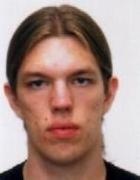Theoretische Physik des frühen Universums
Prof. Björn Garbrecht
Forschungsgebiet
Das beobachtbare Universum kann sehr gut durch das Standardmodell (SM) der Teilchenphysik, Gravitation, Neutrinos und kalte Dunkle Materie beschrieben werden. Das gegenwärtige Verständnis reicht dabei von Zeiten unterhalb des Elektroschwachen Phasenübergangs, 10^-12 Sekunden nach dem Knall, bis zur Gegenwart, 13,8 Milliarden Jahre später. Die kosmische Evolution hängt dabei entscheidend von Anfangsbedingungen wie der Asymmetrie zwischen Materie und Antimaterie, dem Anteil Dunkler Materie und Dichtefluktuationen, aus welchen letztlich Galaxien entstehen, ab.
Das Verständnis der Anfangsbedingungen ist eine der Hauptmotivationen für die Erforschung der Physik jenseits des SM. Die Kosmologie ergänzt so Laborexperimente wie den Large Hadron Collider. Die speziellen Forschungsinteressen unsere Gruppe beinhalten den Ursprung der Asymmetrie zwischen Materie und Antimaterie sowie von Dichtefluktuationen durch Inflation. Insbesondere entwickeln wir Methoden zur Berechnung der Dynamik und der Reaktionen von Elementarteilchen bei sehr hohen Temperaturen und in gekrümmten Raumzeiten, d.h. unter Bedingungen welche im frühen Universum herrschen.
Mitarbeiterinnen und Mitarbeiter der Arbeitsgruppe
Professor
| Photo | Akad. Grad | Vorname | Nachname | Raum | Telefon | |
|---|---|---|---|---|---|---|

|
Prof. Dr. | Björn | Garbrecht | 334 | +49 89 289-12363 |
Sekretariat
| Photo | Akad. Grad | Vorname | Nachname | Raum | Telefon | |
|---|---|---|---|---|---|---|

|
Daniela | Neufang | – | +49 89 289-12662 |
Wissenschaftlerinnen und Wissenschaftler
| Photo | Akad. Grad | Vorname | Nachname | Raum | Telefon | |
|---|---|---|---|---|---|---|

|
M.Sc. | Alexander | Baur | – | – | |

|
Dr. | Mathias | Becker | – | – | |

|
M.Sc. | Matthias | Carosi | – | +49 15153159209 | |

|
Emanuele | Copello | – | – | ||

|
M.Sc. | Kare | Fridell | – | – | |

|
Dr. | Julia | Harz | – | +49 89 289-12601 | |

|
Dr. | Chandan | Hati | – | – | |

|
Juraj | Klaric | 132 | – | ||

|
Raza Ur Rehman | Mir | – | – | ||

|
Martin | Mojahed | – | – | ||

|
Martin | Napetschnig | – | +436646306414 | ||

|
Dr. | Carlos | Tamarit Degenhardt | – | – | |

|
M.Sc. | Edward | Wang | – | – | |

|
M.Sc. | Giovanni | Zattera | – | – |
Studierende
| Photo | Akad. Grad | Vorname | Nachname | Raum | Telefon | |
|---|---|---|---|---|---|---|

|
Cristhian | Calderon | – | – | ||

|
Juan Manuel | Cano Vila | – | – | ||

|
Bahaa | Ilyas | – | +491789265714 | ||
Andere Mitarbeiterinnen und Mitarbeiter
| Photo | Akad. Grad | Vorname | Nachname | Raum | Telefon | |
|---|---|---|---|---|---|---|

|
Dr. | Aschraf | Abdelfattah | – | – | |

|
M.Sc. | Juan | Cruz Avendano | – | – | |

|
Dr. | Ricardo Cesar | Giorgetti Landim | – | – | |

|
Arianna | Tinari | – | – |
Lehrangebot der Arbeitsgruppe
Lehrveranstaltungen mit Beteiligung der Arbeitsgruppe
| Titel und Modulzuordnung | |||
|---|---|---|---|
| Art | SWS | Dozent(en) | Termine |
|
Quantum Field Theory
Zuordnung zu Modulen: |
|||
| VO | 5 | Garbrecht, B. |
Mo, 12:00–14:00, PH HS2 Mi, 12:00–14:00, PH HS2 Mi, 14:00–16:00, PH HS2 |
|
Quantum Field Theory - Prep Course
Zuordnung zu Modulen: |
|||
| VO | 1 |
Garbrecht, B.
Mitwirkende: Baratella, P. |
Di, 10:00–12:00, PH HS3 Di, 12:00–14:00, PH HS3 sowie einzelne oder verschobene Termine |
|
Übung zu Quantenfeldtheorie Zuordnung zu Modulen: |
|||
| UE | 1 |
Leitung/Koordination: Garbrecht, B. |
Termine in Gruppen |
|
Zentralübung zu Quantenfeldtheorie Zuordnung zu Modulen: |
|||
| UE | 1 |
Leitung/Koordination: Garbrecht, B. |
Mi, 14:00–16:00, PH HS2 |
|
Aktuelle Themen aus der Theoretischen Physik des frühen Universums Zuordnung zu Modulen: |
|||
| SE | 2 | Garbrecht, B. |
Mi, 16:00–18:00, PH 3344 |
|
Seminar über Theoretische Elementarteilchenphysik aktuelle Informationen Zuordnung zu Modulen: |
|||
| SE | 2 | Beneke, M. Garbrecht, B. Ibarra, A. Recksiegel, S. Tancredi, L. … (insgesamt 6) |
Do, 14:00–16:00, PH HS3 |
|
Tutorenseminar zu Quantenfeldtheorie Diese Lehrveranstaltung ist keinem Modul zugeordnet. |
|||
| SE | 2 | Garbrecht, B. |
Mo, 16:00–18:00, PH 3343 |